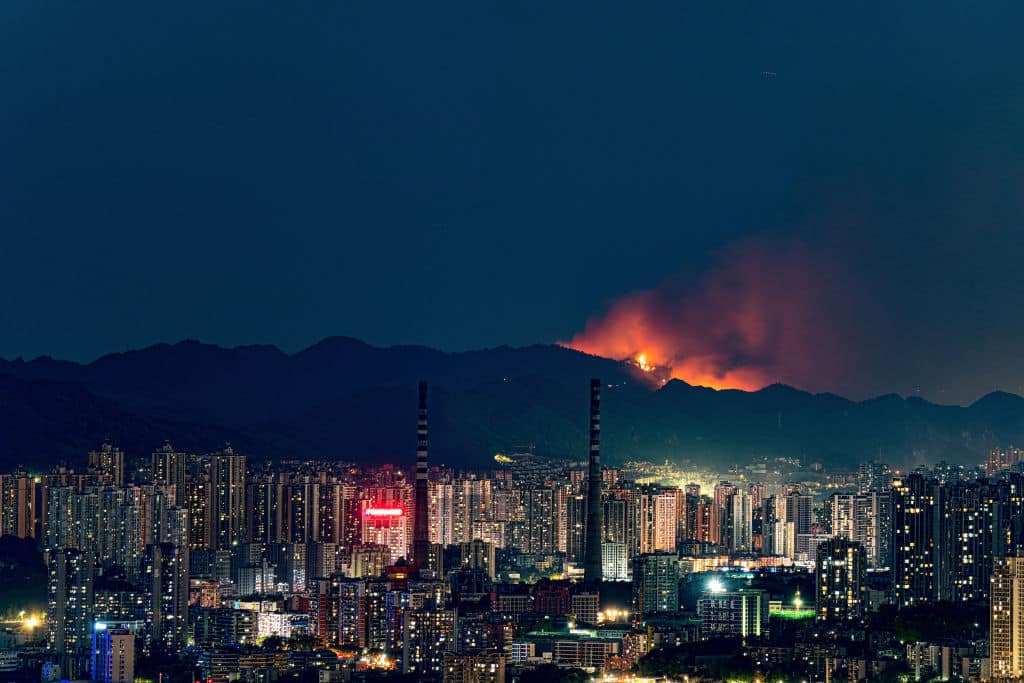After Record-Breaking 2022, China Told to Brace for Another Year of Weather Extremes

 Why you can trust us
Why you can trust us
Founded in 2005 as an Ohio-based environmental newspaper, EcoWatch is a digital platform dedicated to publishing quality, science-based content on environmental issues, causes, and solutions.
China had a year of extreme weather in 2022, suffering a record-breaking heat wave that caused roads to buckle and a drought that dried up parts of the Yangtze River. Flooding and drought in the country were the third and fourth costliest climate-fuelled weather disasters of the year. And, unfortunately, it doesn’t look like the country will get a break in 2023.
The China Meteorological Administration warned at a briefing Monday that the country’s north could see high heat again while the south was at risk from heavy flooding, and spokesman Song Shanyun said the climate crisis was to blame.
“At present, global warming is accelerating… and under the impact of climate change, the climate system is becoming increasingly unstable,” Song said, as Reuters reported.
China’s mean temperature was 0.62 degrees Celsius higher than average in 2022 at 10.5 degrees, government expert Jia Xiaolong said at the same briefing. The mean temperatures for spring, summer and autumn were all the highest on record.
The worst of the heat began in June with a heat wave that lasted more than 70 days and harmed crops, dried reservoirs and sparked wildfires. It surpassed the previous record for the longest heat wave, set in 2013 at 62 days, as Climate Home News reported at the time.
Along with the high temperatures, a drought in the southwestern regions of Sichuan and Chongqing reduced the hydropower supply, Reuters reported. This forced China to rely more on coal, with the daily burning of thermal coal reaching a record high of 8.5 million tonnes on Aug. 3.
To prepare for another year of high heat, the China Meteorological Administration advised the southern regions to make plans to ensure they had the energy resources to meet increased energy demand during the summer.
2022’s extreme heat wave led to increased awareness of climate change in China.
“Many in China are starting to call 2022 as the first year of the new climate era,” Greenpeace East Asia’s Li Shuo told Climate Home at the time. “The only norm might be abnormality from now on.”
In 2022, average rainfall in China was five percent lower than usual, Jia said Monday, as Reuters reported. However, June of 2022 also saw historic flooding that displaced hundreds of thousands of people in the southern provinces of Jiangxi and Guangdong. This year, the flooding is predicted for China’s northern regions.
Both heat and precipitation extremes are expected to worsen in China as the climate warms. The Intergovernmental Panel on Climate Change (IPCC) has observed that daily precipitation extremes have increased over parts of East Asia.
“Heavy precipitation will increase in frequency and intensity (high confidence), leading to more frequent landslides in some mountain areas,” the IPCC observed in its Sixth Assessment Report.
International scientists also echoed Song’s statement that the climate crisis is causing higher temperatures.
“Heatwaves in China have definitely become more common and more intense as well as longer in duration because of human-induced climate change,’ climate attribution expert Friederike Otto told Climate Home in August.
Subscribe to get exclusive updates in our daily newsletter!
By signing up, you agree to the Terms of Use and Privacy Policy & to receive electronic communications from EcoWatch Media Group, which may include marketing promotions, advertisements and sponsored content.

 233k
233k  41k
41k  Subscribe
Subscribe 




